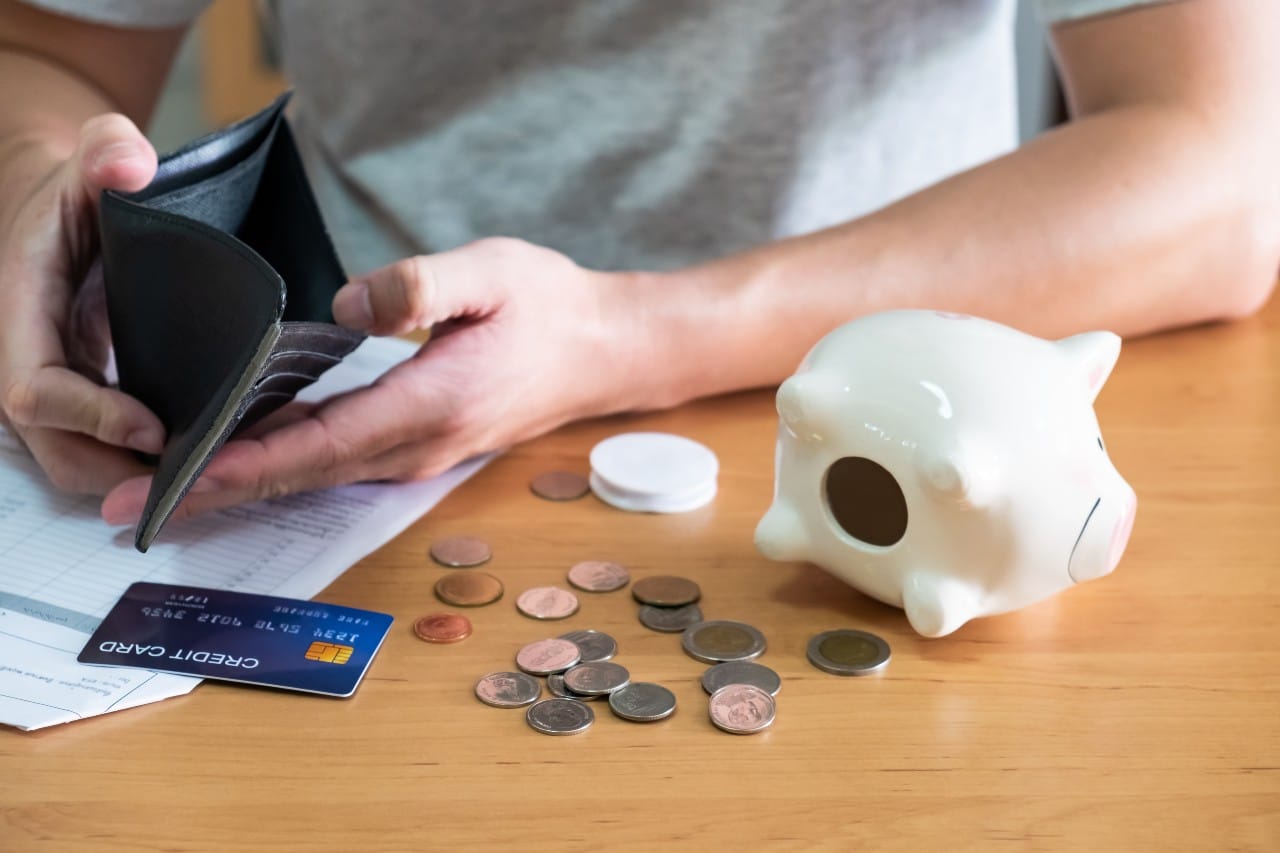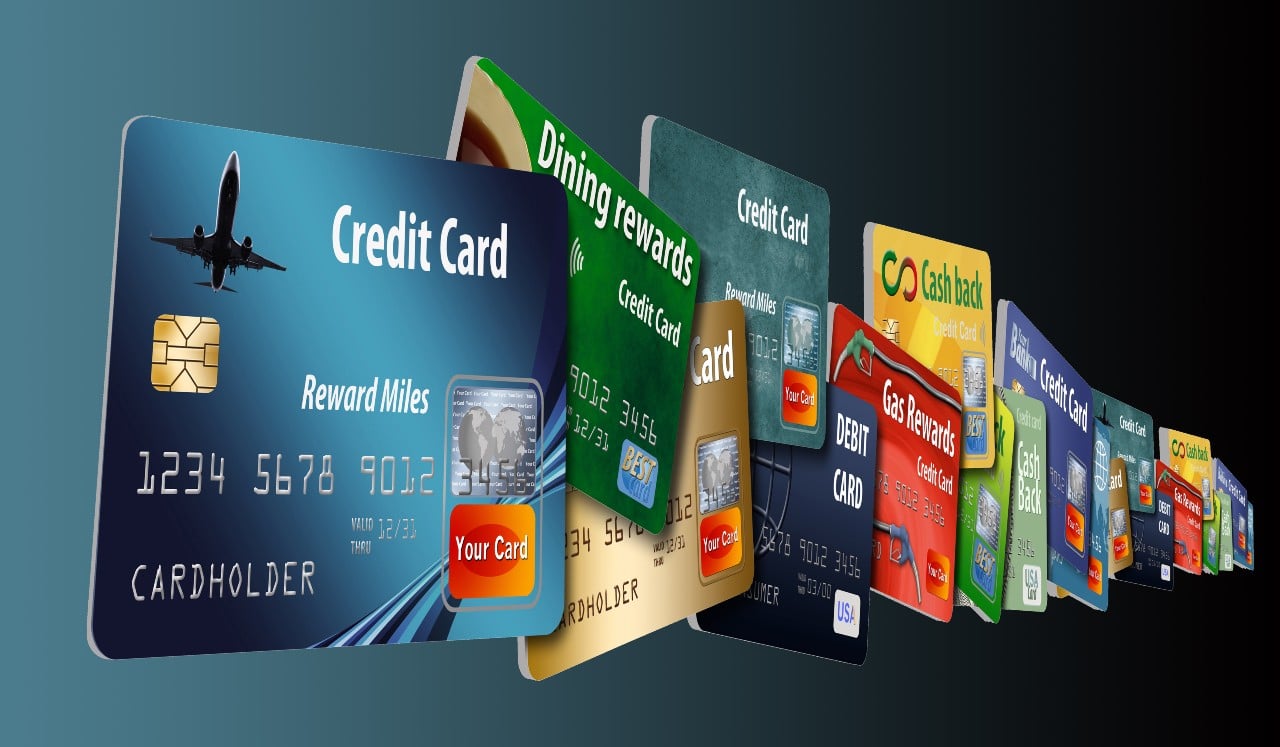Is credit card debt secured or unsecured?
Credit card debt is the most common form of unsecured debt.
Secured debt has a collateral attached. With unsecured debt, there is no collateral that the creditor can claim. So if you don’t make credit card payments, the lender cannot repossess the purchases you made.
However, they can still attempt to make claims in different ways, like hiring a collections agency or going to court to request garnishing your wage. They may even report non-payments or late payments to credit bureaus. Even though credit card debt is unsecured, it is important to make payments on time.
How much debt does the average Canadian have?
According to Equifax, the average Canadian credit card holder carries a balance of $4,119, up from $3,727 in the third quarter of 2022. The average non-mortgage debt is $21,013 across all ages.
What is a credit card APR?
A credit card annual percentage rate, known as the credit card APR, is the yearly rate of interest you’ll pay if you carry a balance on your card. If you pay off your interest in full every month, the APR will not affect you. It is only applied to the amount that remains unpaid after your bill payment due date. Credit cards may have fixed or variable APRs.
Ideally, the lower the APR, the better, especially if you carry a balance. If a higher APR is driving up your interest payments, you may want to look into switching to a card with a lower interest rate.
What is a credit utilization ratio?
The amount of credit you use on your card, divided by the total credit available for you to use, is your credit utilization ratio. For example:
If you have a credit limit of $1,000 and have a debt of $250, your credit utilization ratio is 250 divided by 1000, which is 0.25. In percentages, this would be 25%, which is within the range that lenders like to see.
This ratio helps lenders see how you’re managing your debt and your payments. Usually, lenders prefer that you use 30% or less of the total available credit. If you have a low credit utilization ratio, it may help you get better rates on future borrowing, like a mortgage or auto loan.
How long should it take to pay off credit card debt?
Ideally, you should pay off your credit card in full every month before the due date. By doing so, you will avoid interest payments entirely. If you carry a balance, you may have to pay high rates of interest. This extra cost can lead to needing to carry even more debt.
If you are currently carrying a balance, set a budget and try to put more money towards paying off your credit card debt. The sooner the better, when it comes to paying off credit card debt.
What happens if I miss a credit card payment in Canada?
If you miss a credit card payment or make the payment late after the due date, depending on your lender’s rules, you may face:
- Risk of increased interest rates
- A negative effect on your credit score
- Penalties or fees
- Having your credit card cancelled
That’s why it is recommended that you at least make the minimum payments on time, before the due date. The ideal approach would be to pay off your credit card balance in full every month.
Who regulates credit cards in Canada?
When it comes to financial products and services, the Financial Consumer Agency of Canada (FCAC) protects the rights and interests of consumers. The FCAC enacts policies for federally regulated financial institutions, like banks, federal credit unions, loan companies, and more.
They also enforce these regulations when payment operators aren’t in compliance with them.
What laws are there around credit cards and credit card debt in Canada?
There are laws in place to protect the rights of consumers of financial products, including credit cards. All federally regulated financial institutions must provide complete information and get your express consent before taking any steps related to your credit card. You have the right to be informed and protected against unauthorized transactions. Optional products, like balance protection, cannot be added to your card without express consent.
What is the debt avalanche method for credit card debt?
The debt avalanche method is a debt repayment strategy. The aim is to, while paying just the minimum on all other cards, pay off the account that has the highest APR, or interest rate. Once you pay that off, you focus on paying off the second highest, and so on.
While this method may take a while to fully pay off your debt, you will likely save more on interest payments overall. The main target here is to focus on interest rates, not overall balance amounts.
What is the snowball method for credit card debt?
The snowball method is a debt repayment strategy. It involves paying off your smallest loan first, as quickly as possible, while continuing minimum payments on the rest. Once it’s paid off, you put the extra funds towards that card with the next-smallest payment. The idea is to “snowball” it into much larger payments over time.
This is a relatively quicker method and helps people stay motivated with quick wins. You may not be saving the most on interest payments, as this method focuses on borrowed amounts, not interest rates.
Which debt solutions can help with too much credit card debt?
Consider a debt management plan (DMP), if you’re dealing with too much credit card debt, and want to fix your overall spending and budget. These programs cut down your credit card payments significantly by negotiating with your creditors to reduce or, most often, eliminate interest costs.
Also, consider debt repayment strategies like the snowball method and the avalanche method. Keep in mind, using these methods, you will still have to keep track of multiple individual bills, minimum payment amounts, due dates, and APRs.
Where should I go to consolidate credit card debt?
Many banks, financial institutions, credit unions, and lenders offer solutions to reduce credit card debt. The most common method is taking out a debt consolidation loan. You can combine your various bills into a single monthly payment. This can help streamline your finances and provide lower rates of interest. You can save on interest payments and pay off your debt quickly.
Another method to eliminate credit card debt is a debt management plan. This is a professionally assisted repayment plan. You can enroll through a credit counselling agency, which will help you arrange a repayment schedule. They will also negotiate with your creditors for lower rates of interest.
Can my credit card company increase my credit limit without my consent?
No, your credit card company cannot increase your credit limit without your consent. They must obtain your consent and provide you with written confirmation of whatever changes are being made to your credit limit.
Your credit card company may notify you that you are eligible for a credit limit increase, but you can decline the offer to increase it if you wish.
What happens if I use a credit card to pay for another credit card?
You cannot use a credit card to pay for another credit card. You can, however, transfer your balance to another card. This might be a way to save on interest payments, as balance transfer cards often have introductory offers with low or even 0% interest.
You can then make higher payments and take advantage of the 0% introductory APR to put more money towards the principal and pay off your debts quickly. Do your calculations to ensure you are able to pay it off in full before the introductory offer expires. Otherwise, you may be on the hook for high-interest payments again. You may even end up having to pay interest on the entire amount, including what you paid off while the 0% offer was still on.
Can I pay off credit card debt with a line of credit?
Yes, you can pay off credit card debt with a line of credit.
You will save on interest payments as a line of credit usually has a lower interest rate than a credit card. This way, you will also be able to consolidate all your bills, and only make one monthly payment towards your line of credit.
What happens when I take out a cash advance on my credit card?
When you take out a cash advance on your credit card, it means you are borrowing money from your credit card account so you can have cash. This is essentially a loan and you need to repay it. You will be charged interest on this amount, and you cannot borrow more than the current balance available on the card.
In most cases, interest for a cash advance is counted daily, as soon as you borrow it. The usual grace period on credit card purchases does not apply to a cash advance. Cash advance interest rates are also often higher than the rate for regular purchases, so it can add up quickly.
Can banks sue for credit card debt?
Yes, banks can sue for credit card debt. If you are unable to make payments or arrange different payment terms, you may get hit with a collection lawsuit. There is good news though. Lenders don’t want to go through the hassle and cost of suing. That being the case, they are often willing to work with you and work out different schedules or terms that fit your budget.
If negotiating doesn’t work, you may opt for other debt relief solutions, like a debt management program. If you’re unable to make payments, consider solutions like a consumer proposal. Creditors are willing to work out terms in most cases, and you will avoid the chance of being sued.
Could I go to jail for not paying credit cards in Canada?
No, you cannot go to jail for not paying your credit cards in Canada. Not paying your creditors is not considered cause for arrest or imprisonment. They may attempt to go to court to garnish your wages or bank account, or put a lien on your property. A debt collector or agency may contact you to try and recover unpaid debt, but that’s the extent of what they can try to do.
There are also laws in place that prevent debt collectors from taking legal action against a debtor if the debt is older than six years, but may vary provincially. In Ontario, British Columbia and Alberta, the limitation is two years. It will also drop off your credit report. Note that you still do owe your debt, so they can still call or pursue you for as long as they like.
Can credit card debt follow you overseas?
If you move overseas, your debts still remain active. Your credit score and credit report may not follow you overseas, but Credit Information Companies (CICs) like Equifax and TransUnion may be trusted resources for lenders internationally. If your lender asks to access your credit profile, the procedure could include accessing your international credit profile as well.
In terms of payment, collections may find it more difficult to pursue you, though they are still able to if they wish to do so. It will still lead to a ruined credit score, and creditors may also choose to sue you and file a collection lawsuit.
Is my spouse responsible for my credit card debt in Canada?
No, your spouse is not responsible for your individual credit card debt in Canada. They would only be responsible if they have co-signed on joint debts. This means that they would be liable for payments if you have a joint credit card, or if they are a guarantor on your borrowing.
What happens to credit card debt when you die in Canada?
When someone dies, their credit card debt must be paid by their estate. If it is a joint credit card, the estate or surviving signatory is liable to pay. Debts do not get erased when you die. By Canadian law, your estate must pay off debts before beneficiaries receive any assets. There are some assets that are exempt from seizure, including some types of RRSPs and RRIFs.
Who is responsible for deceased parents’ debt in Canada?
Survivors are not usually liable to pay deceased parents’ debt. In Canada, debts don’t transfer to beneficiaries. The estate of the deceased may use existing assets to settle outstanding debts before the beneficiaries receive anything. If there is no money in the estate, the debts usually go unpaid. The only exception is joint debt. In the case of joint debt, the surviving debtor would be responsible for continuing repayment.



